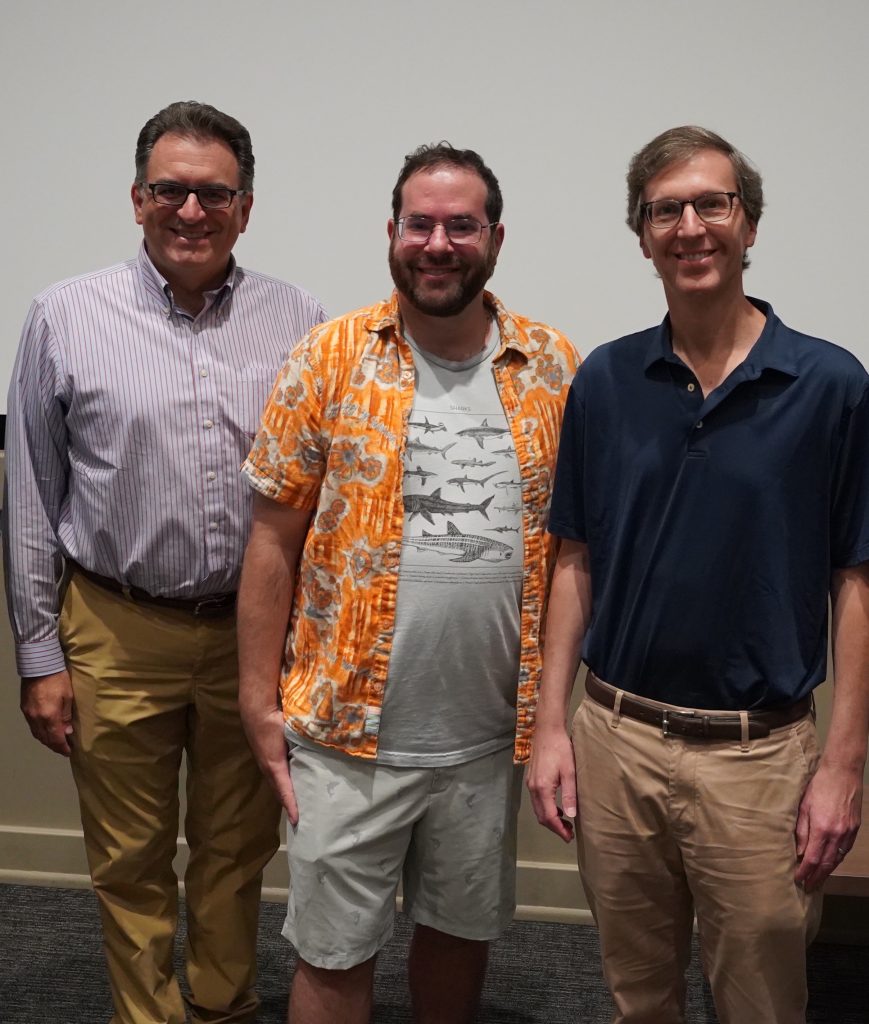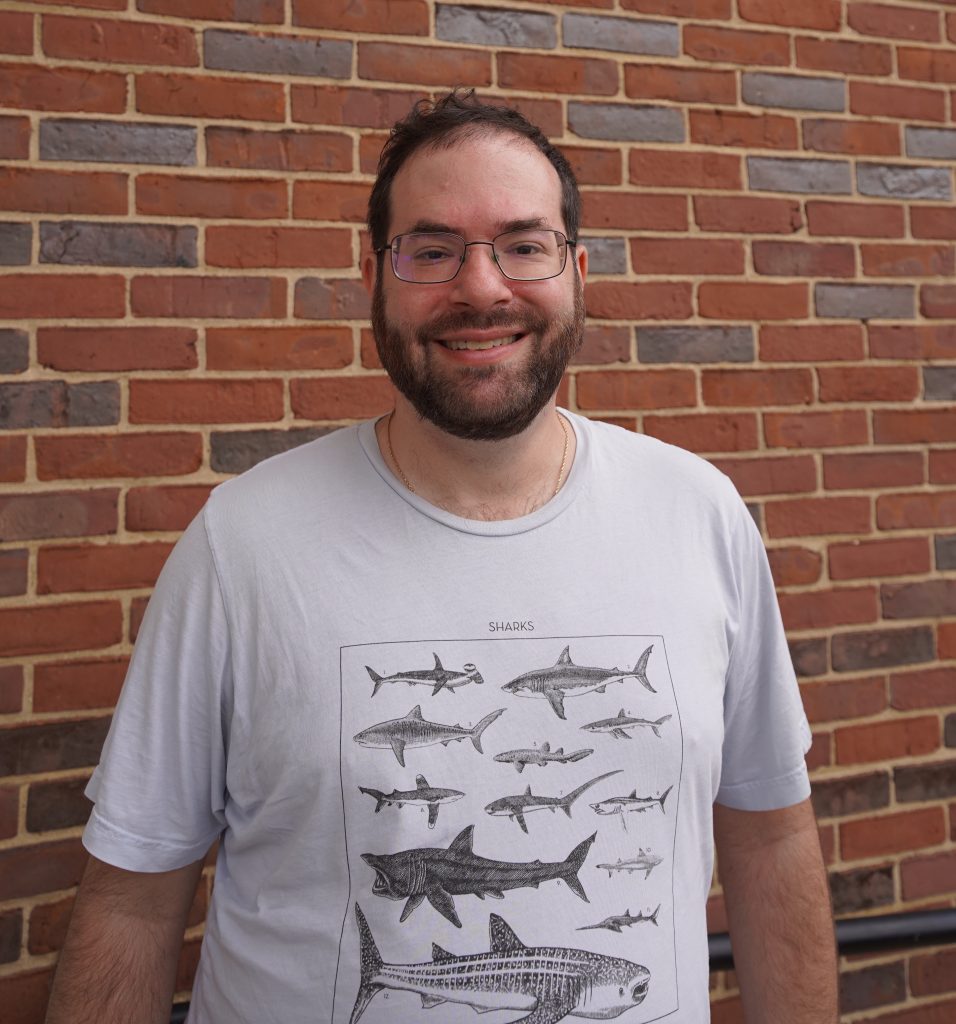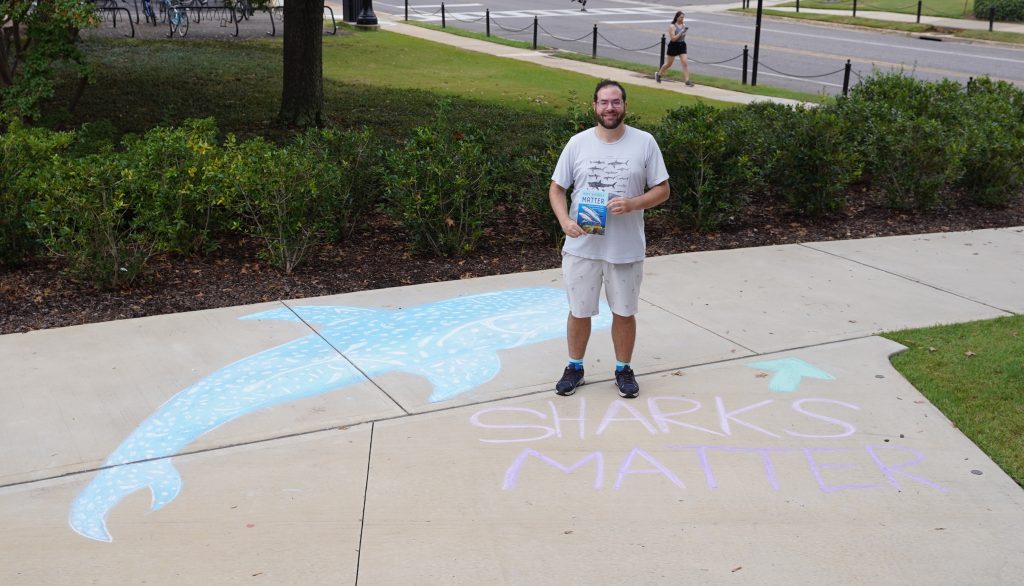
Desktop News | October 2023
The John S. Steiner Endowed Lecture Series in Museums had its inaugural lecture on September 16, 2023, to promote the education of students in disciplines emphasized by The University of Alabama Museums such as anthropology, archaeology, biology, geology, paleontology and history. The lectures aim to target a broad audience and will include speakers who are known for being able to discuss science or historical/cultural research with non-academic audiences and engage them in discussions about cutting-edge research.
For the inaugural presentation, Dr. David Shiffman presented his new book, Why Sharks Matter: A Deep Dive with the World’s Most Misunderstood Predator and dove deeper into a world where sharks are often portrayed as menacing predators. Shiffman is on a mission to debunk the myths and misconceptions surrounding these ancient creatures. As a marine conservation biologist, Shiffman has dedicated his life to studying and advocating for the protection of threatened shark species.
Based in Washington, D.C., and affiliated with Arizona State University, Shiffman’s research has taken him to various coastal regions, including South Carolina, South Florida, British Columbia and even Australia during his junior year abroad. While he engages in public outreach and education, he remains actively involved in fieldwork, particularly concerning hammerhead sharks.

Shiffman’s journey into the world of shark conservation began with a simple realization: there was a dire need for accessible information about sharks for the general public. Many misconceptions about sharks persist, with one of the most pervasive being the notion that sharks are a grave threat to humans. Driven by sensationalism in the media and in iconic films like “Jaws,” this myth has instilled fear in the hearts of many. However, Shiffman is quick to dispel this misconception, pointing out that the odds of being bitten by a shark are remarkably low. In fact, he states that, worldwide, more people are killed by falling flowerpots or bitten by fellow humans in the New York City subway system than by sharks.
Media sensationalism is a major contributor to the perpetuation of these myths. Shiffman highlights the media’s bias towards sensational and dramatic stories, often neglecting to report on the positive progress made in conservation efforts. He advocates for a shift in media focus toward stories that highlight the restoration of ecosystems and the critical role sharks play in maintaining them.
“I would like to see stories about what the ecosystem is supposed to look like and the millions of humans along the coast who depend on that,” stated Shiffman. “And how we’re losing it because we’re mismanaging these resources.”
Despite the challenges, there have been several successful conservation initiatives globally. The United States stands out as a model for sustainable fisheries management, playing an essential role in protecting not only sharks but also the overall biodiversity of the ocean. International treaties like the Convention on International Trade in Endangered Species (CITES) and regional fisheries management organizations (RFMOs) have put regulations in place to combat overfishing and protect shark populations.
When asked about his vision for the future of marine conservation, Shiffman’s response is simple yet profound: he wants to see species and ecosystems protected from extinction due to human activities. He advocates for responsible choices, emphasizing that individuals can make a significant impact by choosing sustainable seafood options, thereby incentivizing better fishing practices.

“Right now, many species face very, very serious threats, whole ecosystems face very, very serious threats, because of us, and we can do better and we should do better,” exclaimed Shiffman.
For students aspiring to pursue careers in marine biology and conservation, Shiffman advises a well-rounded approach. He encourages students to not only take classes but also seek out additional resources, engage with professors and gain hands-on research experience. Becoming a well-rounded scholar and scientist is key to making a meaningful contribution to marine conservation.
Shiffman’s passion for sharks and marine conservation is evident in his dedication to dispelling myths and advocating for their protection. He hopes to have left the audience with a critical message: sharks are not to be feared but cherished as vital contributors to healthy ecosystems, and that the time to act is now, to ensure that these incredible creatures and the oceans they inhabit remain a vibrant and thriving part of our world.